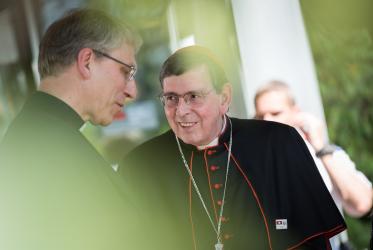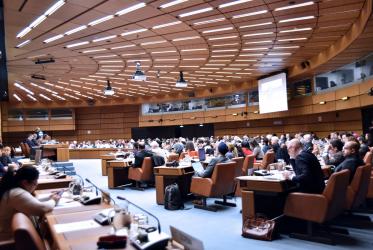Alt-Katholische Kirche Österreichs
(Alt-Katholische Kirche Österreichs)
The church separated from the Roman Catholic Church after the definition of infallibility and the universal primacy of jurisdiction of the pope as a dogma in 1870. The OCCA became an established church in 1877, through the recognition by the Austrian imperial government, although the authorities did not permit the consecration of a bishop or recognize the validity of marriages performed by the Old-Catholic Church. Neither did the government allow the church tax paid by Old-Catholics to be used for the clergy, as was done in the case of all other denominations. Consequently, Old-Catholics, mostly working-class people, were constantly in financial straits. They also had difficulty in finding priests. After the disintegration of the Austro-Hungarian empire in 1918, only three parishes remained. Nine more were established later. The first bishop was consecrated by the archbishop of Utrecht and other bishops during the International Old-Catholic Congress at Bern in 1925. The church suffered much during the period 1933-45, and flourished again from the foundation of the second republic of Austria onwards. In 1982 and again in 1998 the church hosted the gatherings of the International Old-Catholic Congress.
The Old-Catholic Church of Austria seeks to preserve the heritage of the ancient church. It takes seriously the freedom of faith and conscience of the individual. In 2000 it adopted a document stating that the OCCA wants to be an inviting and participatory church, open to diversity, accompanying people in their life journey, a community that is constantly being renewed, a church that offers a home and protection, where each person can receive and live out the faith without fear. All decisions are taken together by the clergy and the laity. Since 1997 the ministry is open to women. The OCCA is ecumenical and is committed to the issues of justice, peace and the integrity of creation.




